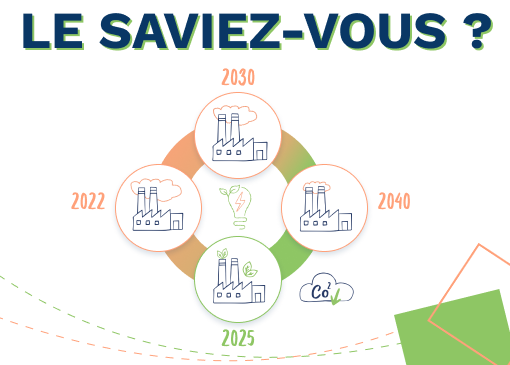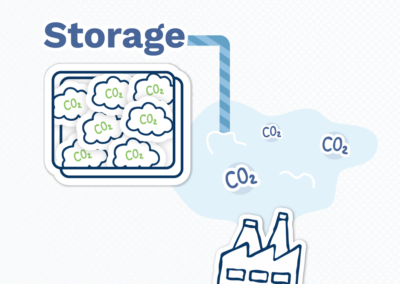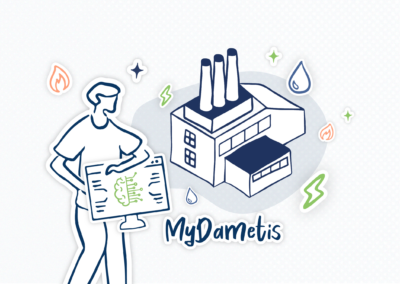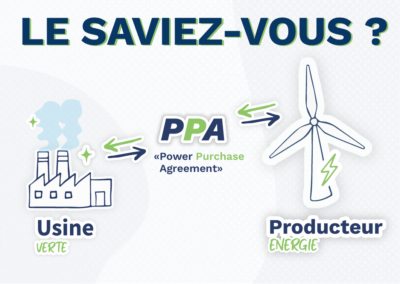
Tertiary Decree, Energy Reduction Obligations and Solutions
The tertiary decree, what is it?
For several years now, France has made it a priority to limit climate change, particularly by accelerating the energy transition of businesses. Introduced in 2019 as part of the ELAN law, the Tertiary Decree is also known as the Tertiary Eco-Energy Device (DEET).
As a reminder, the Elan law (Evolution of Housing, Development, and Digital) promulgated in 2018 aims to respond to numerous housing demands, simplify housing-related standards, and promote social housing.
The tertiary decree is a regulatory text that stems from Article 175 of this law. It focuses on the energy performance of buildings and specifies that the tertiary sector must reduce its energy consumption. In this context, the tertiary decree imposes a significant reduction in energy consumption for buildings designated for tertiary use by 2050.
What infrastructures are affected by the tertiary decree?
Every owner or tenant of buildings, parts of buildings, or groups of buildings housing tertiary activities with a surface area equal to or greater than 1000m² is subject to the tertiary decree. Thus, if a building has mixed use, only the part housing tertiary activity is affected. In the case of a group of buildings located on the same site or the same land unit*, it is necessary to cumulate the surfaces on which tertiary activity is carried out to determine if the building is subject to the tertiary decree or not.
As part of the tertiary decree, owners must act on the building and their activity if they carry it out themselves. Conversely, tenants can only act on their activity.
This tertiary decree thus applies to many buildings, whether private or public. The buildings concerned include:
- Offices
- Hotels
- Shops
- Educational buildings
- Administrative buildings
- Logistics
- Health facilities
- Sport facilities
Thus, industries may be affected by the tertiary decree if they have:
- A company restaurant
- Administrative offices or a desk area (HR, Sales, etc.)
- A showroom
- Storage space
Particularity of storage space in the tertiary decree
Among storage spaces, the following are not subject to:
- The raw material storage space, or silo, storing unfinished bulk products, included in the industrial process
- Storage space for finished products, before shipment only and within the framework of just-in-time flows, the stay of the products not exceeding 5 days
Storage spaces subject to compliance with the tertiary decree:
- The storage space for finished products in the context where the manufacturer does not operate under tight flow and where the finished products are stored for more than 5 days
*Single-block area composed of one or more plots belonging to the same owner or division
What are the obligations to comply with?
To achieve the goal of improving sustainable development within the French territory, the Government, as part of the tertiary decree, has imposed a reduction in energy consumption for businesses by 2050. To hope to achieve the expected goal within about fifteen years, the Government has set various objectives expressed in absolute or relative value. It is up to the subject to choose how they prefer to fulfill the objectives of the tertiary decree. In case of non-compliance with the objective, the tertiary decree stipulates that sanctions may be imposed.
In the context of achieving the objective with the relative value method: The State has established different “levels” that occur every decade until the final objective set for 2050. The levels set by the tertiary decree, which must be met by owners or tenants of a building housing tertiary activity, are as follows:
- Reduction of the building’s final energy consumption by 40% by 2030
- Reduction of the building’s final energy consumption by 50% by 2040
- Reduction of the building’s final energy consumption by 60% by 2050
This energy reduction must be compared to a reference year chosen between 2010 and 2019, provided by the subject themselves.
It may be beneficial to choose this relative value method in the case of tertiary activity carried out in an older, more energy-intensive building.
In the context of achieving the objective with the absolute value method: The objectives to be achieved will then be set according to the category of the building, the geographical area, and the altitude. Compared to these elements, the thresholds will be different from those of the relative value because they will depend on two components:
- HVAC = Heating, Ventilation, Air Conditioning
- USE = Specific Use
This absolute value method, as part of the tertiary decree, is preferred when the subject owns a recent, energy-efficient building.
If the tertiary activity of the building is modified, the part or ensemble of the building related to the tertiary part remains subject to the tertiary decree; however, the objectives will be readjusted according to the new typology of the activity.
In some cases, these levels can be modulated, notably in the event of technical constraints, when the situation does not allow these high objectives to be achieved: too old building, new activity, etc. In this situation, it is necessary to prepare a technical dossier which must then be sent to the OPERAT platform.
How to provide data related to the tertiary decree?
- Description of the tertiary activity performed
- Floor area of the buildings performing this activity
- The reference year, mandatory regardless of the chosen method (the reference year having to be provided in September 2022)
- Annual energy consumption data for the building
- Possible adjustments to objectives
As of 2022, subjects must now submit the final energy consumption for the previous year of their building to the OPERAT platform, each year before September 30.
The tertiary decree being a very vast and complex subject, the OPERAT platform also has an FAQ tab that answers all the more in-depth questions.
How to meet the obligations of
the tertiary decree?
To avoid any sanction, subjects must proceed methodically. Here are the steps to follow to reduce energy consumption:
Step 1: Identify precisely the premises subject to the tertiary decree
Step 2: Analyze the most energy-consuming points of your buildings
Step 3: Implement an action plan to reduce your consumption and meet the objectives set by the tertiary decree
To meet the obligations of the tertiary decree, it is possible to use external service providers who can help reduce energy consumption and fill in the data on the OPERAT platform.
In case of non-compliance with the obligations, what are the applicable sanctions?
In the context of the tertiary decree, the subject must:
- Declare their data each year before September 30 on the OPERAT platform
- Comply with the objectives set by the tertiary decree
In the event of failure to comply with one of these two obligations, the taxable person may incur various sanctions.
In case of unjustified non-declaration of data on the OPERAT platform:
The competent prefect in charge of the building and the tertiary activity performed may require the subject to provide the missing information within three months.
In case of non-compliance with the objectives set by the tertiary decree:
The prefect may require the subject to submit an action plan within six months, for which they are committed to complying. If, at the end of these six months, no progress is visible, then the prefect may issue an individual notice to the owner or the lessee. They will then be required to submit their action plan within three months, which must comply with their respective obligations.
Following the last notice and if the subject has not communicated their action plan to the prefect, the prefect may impose a financial penalty of up to €1500 for an individual and up to €7500 for a legal entity.
It should be noted that in France, a document published online traces the ineffective notices. Thus, notices can have serious consequences on the image and reputation of the company and consequently on its activity.

















